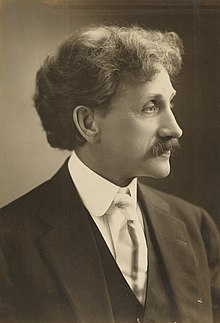**Biography and Early Life**:
– J. Howard Moore was born on December 4, 1862, near Rockville, Indiana.
– Moore’s upbringing instilled an anthropocentric belief in him.
– He studied at various schools and colleges in Missouri, Iowa, and Kansas.
– Exposure to Darwin’s theory of evolution led Moore to reject Christianity.
– Moore became a vegetarian for ethical reasons and engaged in various social and educational activities.
– Moore authored ‘The Universal Kinship’ in 1906, focusing on vegetarian ethics and animal protection.
– Moore’s work influenced the animal rights movement.
**Career, Contributions, and Publications**:
– Moore was a zoologist, philosopher, educator, humanitarian, and socialist.
– He was an early advocate of animal rights and ethical vegetarianism in the U.S.
– Moore authored numerous articles, books, and essays on various topics.
– His significant works include ‘Better-World Philosophy’ and ‘The Universal Kinship.’
– Moore’s publications advocated for a frugal diet and ethical vegetarianism.
– His writings were featured in various publications and journals.
– Moore was a champion prohibition orator and critiqued butchery practices of his time.
**Influence, Legacy, and Commemoration**:
– Moore was a key figure in the American humanitarian movement.
– He advocated for a sentiocentric philosophy called the doctrine of Universal Kinship.
– Moore’s advocacy for ethical treatment of animals and humanitarianism left a lasting impact.
– His legacy is recognized by organizations like the Henry S. Salt Society.
– Moore’s ideas on universal kinship and compassion influenced future generations.
– Moore’s death sparked discussions on mental health and ethical living.
– His life and work were commemorated in various literary and historical accounts.
**Selected Works and Publications**:
– ‘Better-World Philosophy’ (1899) expressed Moore’s desire to change human perception.
– ‘The Universal Kinship’ (1906) explored the relationship between humans and animals.
– ‘The Cost of a Skin’ (1906) was a controversial speech denouncing wearing fur and feathers.
– ‘The New Ethics’ (1907) advocated for expanding ethics based on Darwin’s theory of evolution.
– ‘Ethics and Education’ (1912) supported teaching morals in public schools.
– Moore’s writings were included in books and encyclopedias on animal rights and welfare.
**Contemporary Reception, Academic Recognition, and Critique**:
– Moore advocated for ethical vegetarianism ahead of his time.
– His views anticipated Peter Singer’s analysis of speciesism.
– Moore is considered an early activist in animal rights.
– Moore’s contributions to vegetarian ethics and animal protection were acknowledged by scholars.
– His work was critiqued and analyzed in academic circles.
– Moore’s legacy continues to be studied and debated in relation to environmental ethics.
John Howard Moore (December 4, 1862 – June 17, 1916) was an American zoologist, philosopher, educator, humanitarian and socialist. He is considered to be an early, yet neglected, proponent of animal rights and ethical vegetarianism, and was a leading figure in the American humanitarian movement. Moore was a prolific writer, authoring numerous articles, books, essays, pamphlets on topics including animal rights, education, ethics, evolutionary biology, humanitarianism, socialism, temperance, utilitarianism and vegetarianism. He also lectured on many of these subjects and was widely regarded as a talented orator, earning the name the "silver tongue of Kansas" for his lectures on prohibition.
J. Howard Moore | |
|---|---|
 Moore, c. 1900–1914 | |
| Born | John Howard Moore December 4, 1862 |
| Died | June 17, 1916 (aged 53) |
| Resting place | Excelsior Cemetery, Mitchell County, Kansas, U.S. 39°23′48″N 98°21′28″W / 39.3967018°N 98.3578033°W |
| Other names | Silver tongue of Kansas |
| Education | |
| Occupations |
|
| Known for | Animal rights and ethical vegetarianism advocacy |
| Notable work |
|
| Spouse | Jennie Louise Darrow
(m. 1899) |
| Relatives | Clarence Darrow (brother-in-law) |
| Signature | |
Moore was born near Rockville, Indiana, in 1862 and spent his formative years in Linden, Missouri. Raised as a Christian, this instilled in him the anthropocentric belief that non-human animals existed for the benefit of humans. At college, Moore was introduced to Darwin's theory of evolution, which led him to develop an ethic that rejected both Christianity and anthropocentrism, and recognized the intrinsic value of animals; he adopted vegetarianism as an extension of this belief. While studying zoology at the University of Chicago, he became a socialist, helped form the university's Vegetarian Eating Club and won a national oratorical contest on prohibition. Moore was an influential member of the Chicago Vegetarian Society and attempted to model the organization as an American version of the Humanitarian League, a British organization that Moore was also a member of. In 1895, Moore delivered a speech that was published by the Chicago Vegetarian Society as Why I Am a Vegetarian. For the rest of his life, Moore worked as a teacher in Chicago, while continuing to lecture and write.
In 1899, Moore published his first book Better-World Philosophy, in which he described what he saw as fundamental problems in the world and his ideal arrangement of the universe. In 1906, his best-known work The Universal Kinship was published, in which he advocated for a sentiocentric philosophy he called the doctrine of Universal Kinship, based on the shared evolutionary kinship between all sentient beings. Moore expanded on his ideas in The New Ethics the following year. In response to the passing of a law in Illinois prescribing the teaching of morals in public schools, Moore published supporting education material, in the form of two books and a pamphlet. This was followed by two books on evolution: The Law of Biogenesis (1914) and Savage Survivals (1916). After having suffered from chronic illness and depression for several years, Moore killed himself at the age of 53 in Jackson Park, Chicago.
